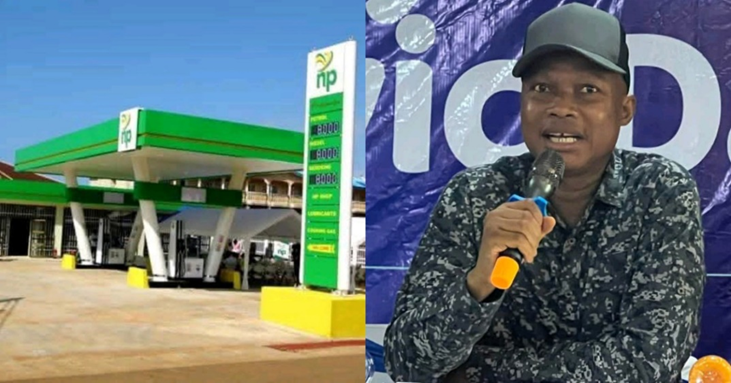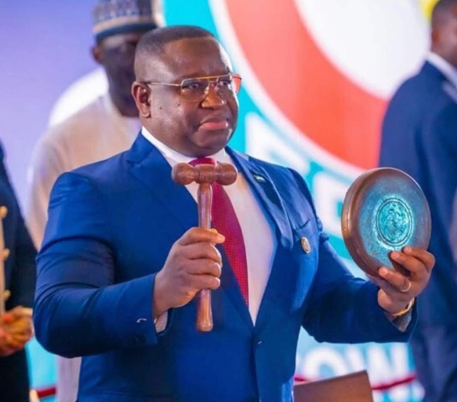By Mariama Bundu
At the Government Weekly Press Briefing held on Tuesday, July 15, 2025, at the Miatta Conference Centre, Director General of the National Petroleum Regulatory Authority (NPRA), Brima Baluwa Koroma, provided a comprehensive update on the transformation of Sierra Leone’s fuel sector. He detailed the reforms that have taken place following the agency’s evolution from the Petroleum Regulatory Agency (PRA) to the NPRA, and addressed key public concerns surrounding fuel pricing disparities and sector performance.
Describing the shift as a “fast-track transformation,” DG Koroma said the rebranding of the PRA into the NPRA represents a graduation into a more efficient and responsive regulatory body. He credited the progress to the leadership of President Julius Maada Bio, who, five years ago, set out three core goals for petroleum sector reform: opening the market, expanding downstream infrastructure, and securing petroleum revenues while protecting public tax interests.
DG Koroma recalled a time when Sierra Leone’s fuel sector was plagued by chronic supply shortages. “Five years ago, our stock levels only lasted between 10 to 14 days. This forced frequent and costly importation, resulting in nationwide rationing and severe disruptions,” he said. Fuel stations were often forced to limit sales to 20 litres per customer, triggering long queues and public frustration.
Today, the situation has drastically improved. Koroma announced that daily fuel consumption has risen to 1.3 million litres, a significant increase from one million litres in previous years. More notably, the country’s fuel storage capacity has more than doubled to 278,000 metric tons, allowing fuel stocks to last between six to seven weeks—a historic achievement for the nation. He further noted that the petroleum sector now contributes 12% of Sierra Leone’s government revenue, showing steady growth since 2018.
One of the most debated issues—the fluctuating fuel prices—was directly addressed. DG Koroma explained that the NPRA, in collaboration with the Ministry of Finance and the World Bank, has reviewed and adopted a fuel pricing formula aligned with international best practices. To ensure fairness and prevent exploitation, the NPRA has instituted a price ceiling of NLe 27.4 per litre. He urged citizens to report any station selling above that rate.
“We are one of the few countries in the world with a uniform fuel price across all regions. It’s not happening anywhere else,” Koroma emphasized, describing the achievement as both rare and commendable.
He also addressed confusion surrounding lower prices at some fuel stations. According to Koroma, some dealers now sell at NLe 25 or NLe 26 due to increased competition—a result of government efforts to open up the market. “Five years ago, no fuel dealer voluntarily reduced prices,” he stated, challenging media outlets to find any record of such actions in the past. He credited the current price competition to policy-driven liberalization and encouraged the media to report responsibly and avoid spreading misinformation that could mislead the public or fuel operators.
Highlighting the legislative backing behind these reforms, Koroma pointed to the new NPRA Act, which replaces the outdated 2014 PRA Act. He referenced Part 3, Sections 12 and 54, which mandate the NPRA to maintain strategic reserves and ensure that all licensed operators uphold minimum stock requirements. The Act also simplifies market entry, increasing the number of licensed operators from three to ten, including several local and youth-led companies.
DG Koroma concluded his briefing by calling for broader public support to sustain the progress made in the sector. He emphasized that the era of fuel rationing is over, and that the public now has access to consistent supplies at fair prices.
“Let us work together to protect the interest of the public,” he said, appealing to journalists, civil society, and consumers to become active stakeholders in maintaining fuel stability, transparency, and access.
With these ongoing reforms, the NPRA aims not just to regulate fuel but to ensure that Sierra Leone’s energy sector is efficient, competitive, and aligned with national development goals.



